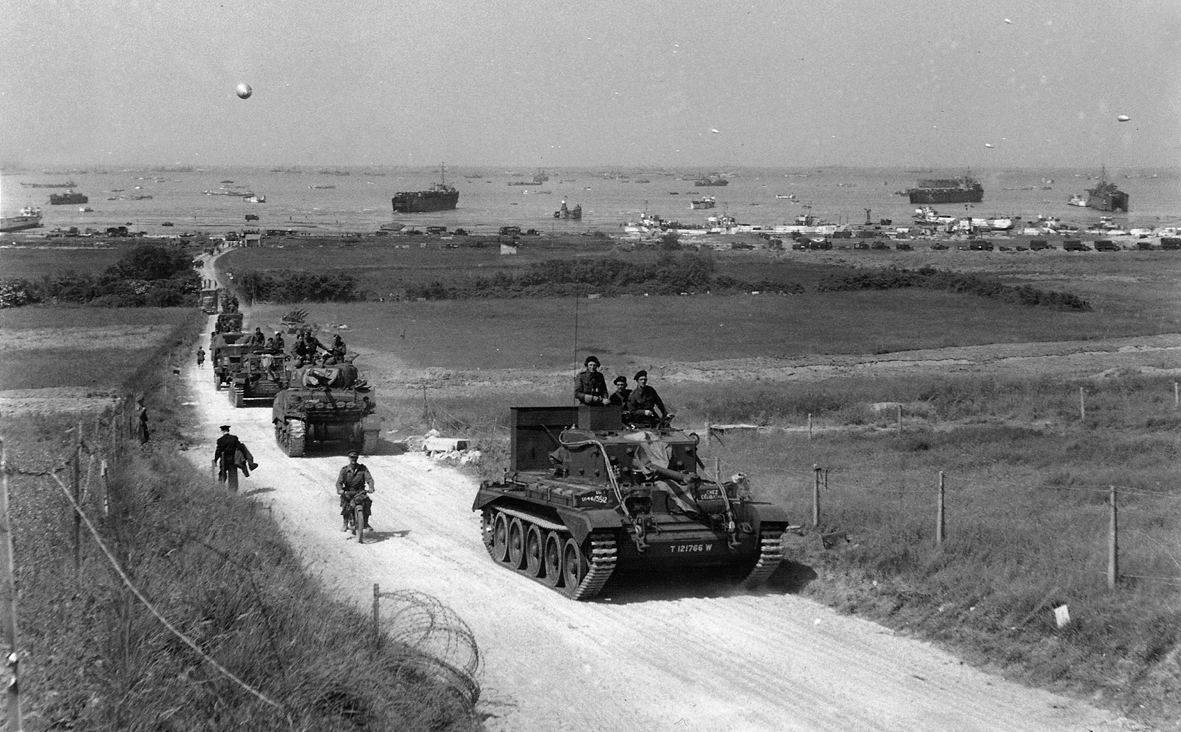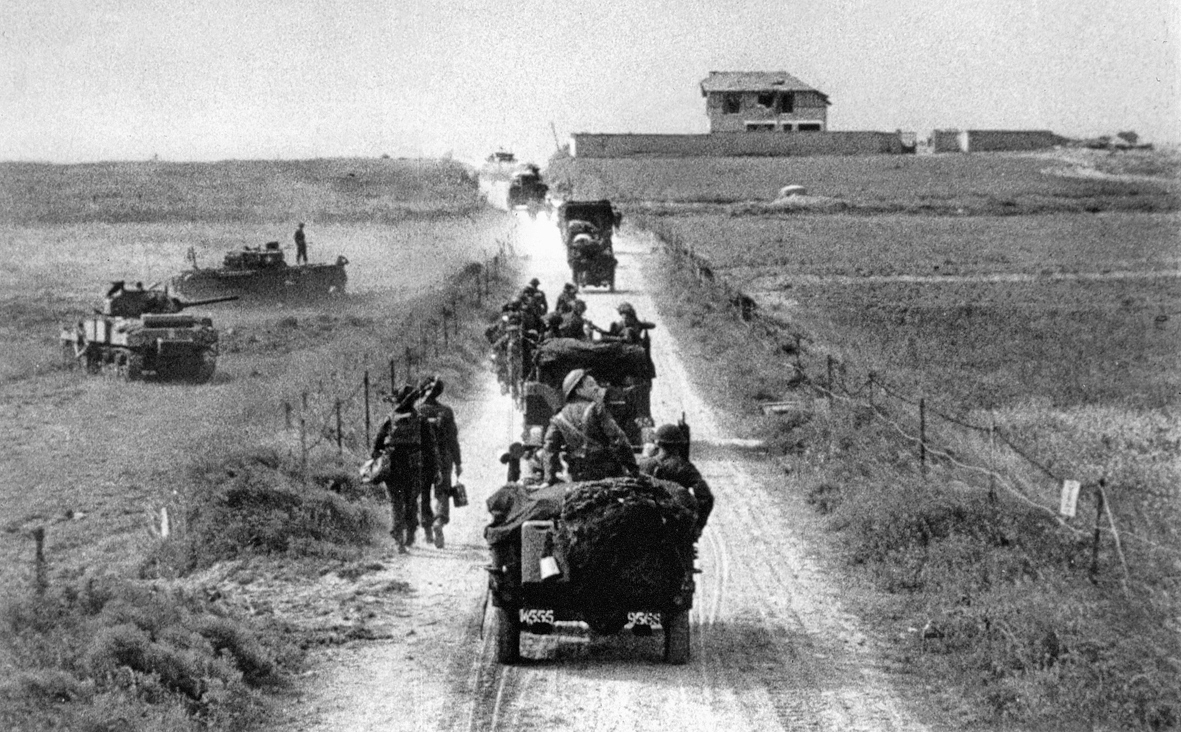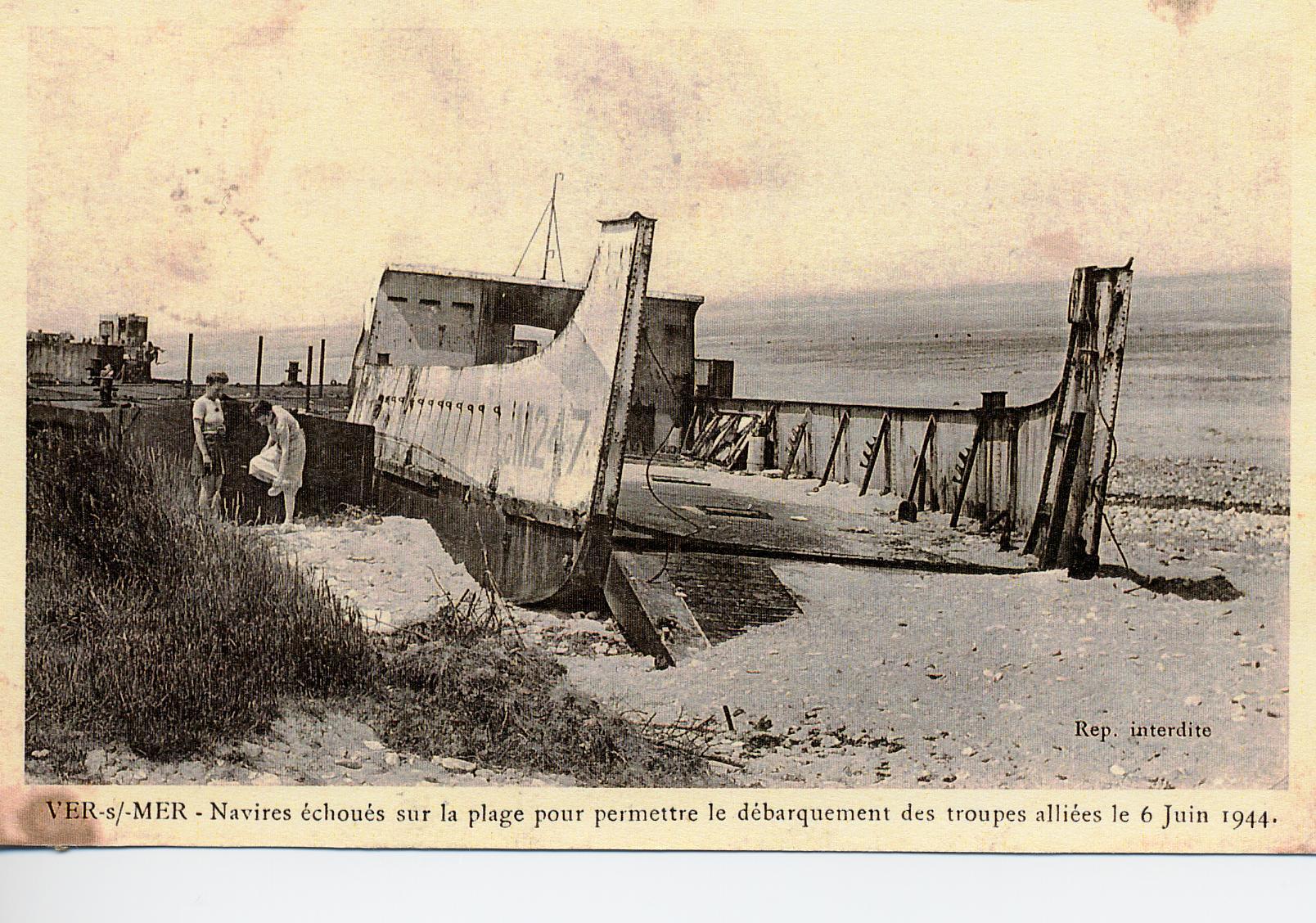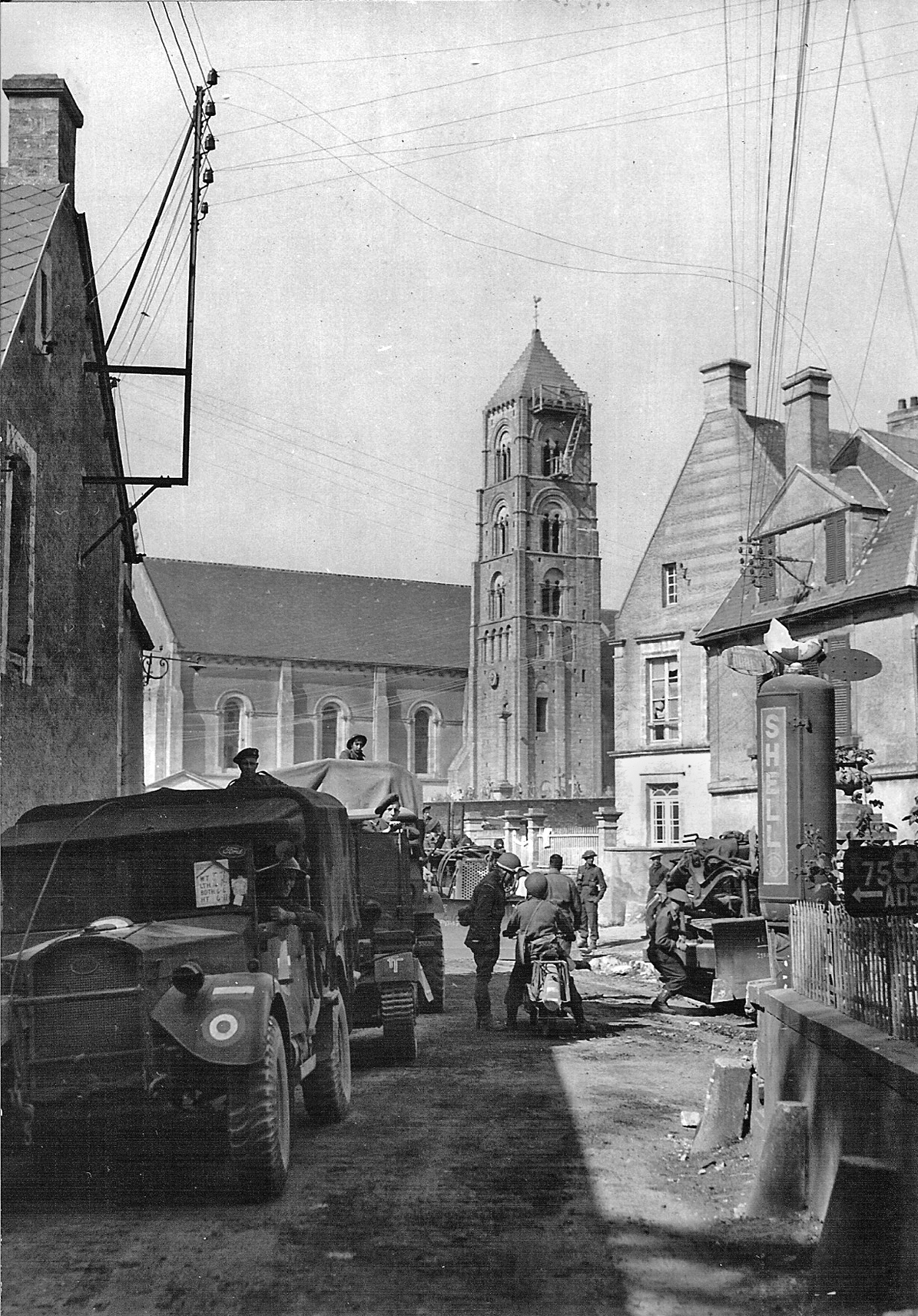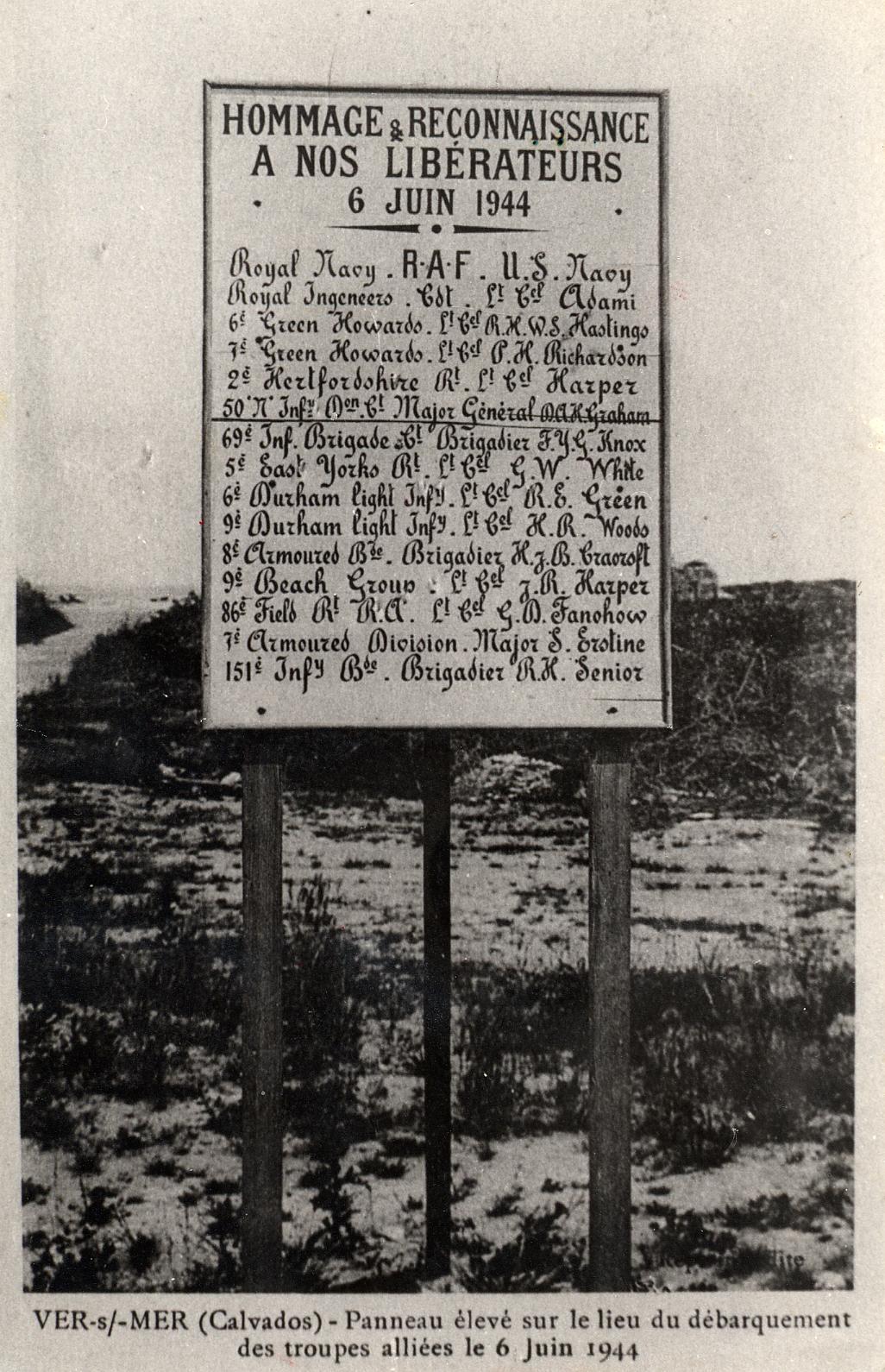Gold Beach was located between Le Hamel (now called Guerre) and La Rivière. With a length of around 8 km, it was also at the centre of the Normandy landing beaches. To the west were the two American beaches of Omaha and Utah. To the east lay the Canadian Juno Beach and the British Sword Beach.
In the original planning, the landing area was to include beaches further to the west of Gold. However, this was abandoned. As well as being overlooked by high cliffs, there were two towns in this area designated as key objectives: Arromanches-les-Baines, for the artificial harbour, and Port-en-Bessin for a major fuel harbour. So as to avoid too much damage, it was better to take these key towns from the landward side.
Landings began at 07:25. This was 50 minutes after the start of landings on the American beaches.
The first British troops to land were the 1st Battalion Hampshire and 1st Battalion Dorset on the western half of Gold Beach and on the eastern half, at Ver-sur-Mer, the 6th Battalion Green Howards and 5th Battalion East Yorkshires.
Their experiences varied. At Le Hamel, British troops faced heavy German resistance while the eastern “King” beaches had a less difficult landing.
The 47th Royal Marines Commando landed at 09:50 near the town of Asnelles. The landing was far from smooth as five of their landing craft struck mines and other obstacles resulting in many casualties. Their main objective was to capture Port-en-Bessin with as little damage as possible. This port was key for the allies as it was to be used for fuel reception until Cherbourg could be captured, which did not happen until 30 June. In the event the Commandos captured Port-en-Bessin on 8 June.
By the end of the 6th June, Gold Beach had been the most successful of all the landings in terms of objectives met and the relatively limited number of casualties.
However, the horror experienced by British troops on Gold Beach should not be understated, as expressed in this quote from Max Hastings’ book Overlord, originally taken from the regimental magazine of the King’s Own Shropshire Light Infantry:
“We hit two mines going in [wrote Wilson] – bottle mines on stakes. They didn’t stop us, although our ramp was damaged and an officer standing on it was killed. We grounded on a sandbank. The first man off was a commando sergeant in full kit. He disappeared like a stone into six feet of water. We grasped the ropes of the ‘Roly Poly’ and plunged down the ramp into the icy water. The mat was quite unmanageable in the rough water and dragged us away towards some mines. We let go the ropes and scrambled ashore. I lost my shoes and vest in the struggle, and had only my PT shorts ... The beach was strewn with wreckage, a blazing tank, bundles of blankets and kit, bodies and bits of bodies. One bloke near me was blown in half by a shell and his lower part collapsed in a bloody heap in the sand. The half-track stopped and I managed to struggle into my clothes.”
